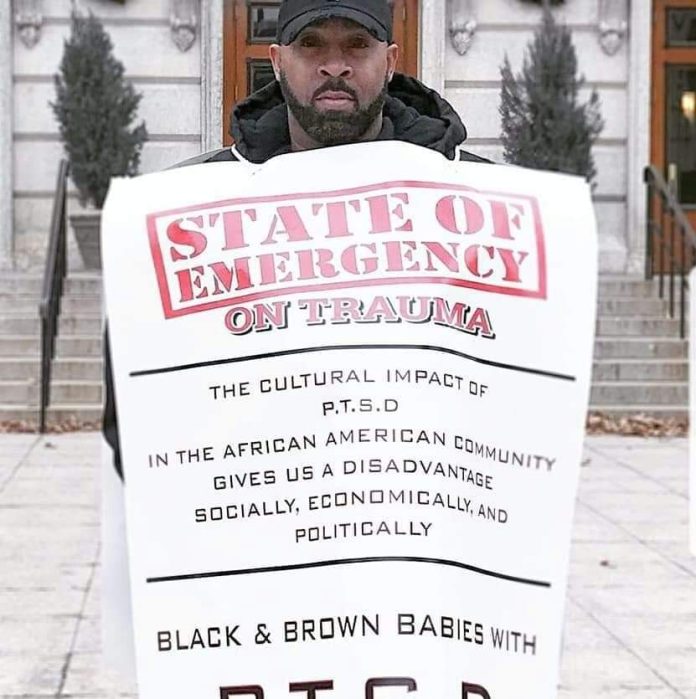Childhood trauma seems to be a never ending cycle. We keep saying we want to do something about it but we keep spending billions on the aftershocks of trauma, instead of spending millions on things that would stop the after-effects of trauma in its tracks. Think about an earthquake. An earthquake has the potential to cause all kinds of damage. The aftershock can be responsible for additional damage and casualties, as well as for delaying efforts to free people already trapped beneath rubble. There are also examples of large aftershocks’ causing more damage and loss of life than the earthquakes they are associated with.
When we are speaking of childhood trauma, it is like an earthquake, because we can’t always prevent childhood trauma. Childhood trauma is often described as serious adverse childhood experiences. Children may go through a range of experiences that classify as psychological trauma, these might include neglect, abandonment, sexual abuse, and physical abuse, witnessing abuse of a sibling or parent, witnessing community violence, witnessing natural disasters, having drug addicted parent/caregiver, or having a mentally ill parent/caregiver. Unfortunately, it has been discovered recently that the epigenetics of trauma can have generational effects. That idea would have been laughed at 20 years ago. But today the hypothesis that an individual’s experience might alter the cells and behavior of their children and grandchildren has become widely accepted. There have already been studies in humans exposed to traumatic conditions—among them the children of Holocaust survivors—suggest subtle biological and health changes in their children.
The implications are profound. If our experiences can have consequences that reverberate to our children or our children’s children, that’s a powerful argument against everything from smoking to immigration policies that split families. It is frightening when you think that things that our great-grandparents were exposed to genetically altered us and changed our disease risk and mental health risks. If trauma can trigger such epigenetic changes in people, the alterations could serve as biomarkers to identify individuals at greater risk for mental illness or other health problems—and as targets for interventions that might reverse that legacy.
Now let’s look at the uniqueness of trauma for African Americans. Over 400 years there have been an estimated 36-45 generations born. The Epigenetics of Trauma in our DNA creates the foundation of a survival community with no name and no cultural foundation. Most African-Americans got their last names from the owners of the plantations that they were enslaved on. My father’s side of the family got their last name Barron from the plantation my great grandparents worked in South Carolina. Slavery was legal for 246 years. That is almost 10 generations that lived and experienced all the trauma that came with slavery in the United States of America. The end of legal slavery was followed by the Jim Crow Era. The Jim Crow Era had its own trauma that through epigenetics is deeply rooted in the DNA of those that are descendants from the survivors of the American Slave Trade. The descendants of the slaves have the DNA of those that survived human trafficking, rape, molestation, starvation, neglect, tourture, verbal and physical abuse – so the fact is that we are predisposed to all of the aftershocks that current trauma can bring.
Imagine you have an African American child that is born to a mother that is addicted to drugs and you are subjected to unspeakable abuse by the hands of your mother’s drug dealer, while your biological father is kept away from you by the Family Court System. Imagine after suffering daily abuse, neglect, hunger, watching your mother abused, your sister abuse, your mother using drugs and all that comes with that for 17 years.
Now imagine that you have a young white male that grew up in the best community. His family is descended from some of the founding fathers of the state. He lives in a two parent home and his home is in middle income, healthy, and stable. He goes to one of the best schools in the city. After graduation he decided to serve in the army and was sent to Afghanistan for 3 years without seeing any real combat, but surrounded by the real threat of violence and death daily for 3 years. He returns to his family for the holidays and his mom notices he’s acting a little different than he did before he left. His family takes him to be seen by the family doctor and he is diagnosed with PTSD.
The problem is the African American child that is predisposed to the aftershocks of trauma is rarely diagnosed with Pmost Traumatic Syndrome Disorder or anything for that matter. We have a large number of African American, poor Whites, Appalachian, and Hispanic children that live everyday for most of their childhood that live in war zones. Homes where they see domestic violence, drug abuse, physical abuse, and poverty not for 3 years but from 2-18 and their diagnosis is, bad behavior, unruly, delinquent and criminal. Why does the narrative change when it comes to the poor and disenfranchised? Why is it so hard to convince our legislators that Childhood Trauma is as much an epidemic as Covid and has taken way more lives than any known disease? Vaping was recently declared a State of Emergency and they have spent millions on ads and prevention.
There have been all kinds of initiatives to make people aware of the effects of using this product but have quiet and sidebar conversations about Trauma and the aftershocks. Childhood traumas, particularly those that are interpersonal, intentional, and chronic are associated with greater rates of PTSD, depression, anxiety, antisocial behaviors and greater risk for alcohol and substance use disorders. Adults with a history of untreated childhood trauma are more likely than the general population to experience physical health problems including diabetes, gastrointestinal problems, arthritis, headaches, gynaecological problems, stroke, hepatitis and heart disease. These are just the physical “aftershocks” that are so costly to our community at large. For those that are getting treatment as adults, many are doing so with Medicaid. Medicaid cost our country $613.5 Billion dollars in 2019.
Prison costs taxpayers $80 billion a year. In one study of the more than 93,000 children currently incarcerated, between 75 and 93 percent have experienced at least one traumatic experience, including sexual abuse, war, community violence, neglect and maltreatment. When the childhood trauma goes untreated, you find these same children now in adult prisons. A government study conducted in 2012 of men in prison stated “Rates of physical, sexual, and emotional trauma were higher in childhood than adulthood and ranged from 44.7% (physical trauma in childhood) to 4.5% (sexual trauma in adulthood). Trauma exposure was found to be strongly associated with a wide range of behavioral problems and clinical symptoms. Given the sheer numbers of incarcerated men and the strength of these associations, targeted intervention is critical.”
We all know the facts. There will be more trauma in communities when there are fewer resources. We just seem to be in a never ending cycle. Those with undiagnosed mental health issues – generally self medicate with illegal drugs and or alcohol. When you don’t treat the root cause we can’t effectively treat the problems. We had a War on Drugs, but not a war on trauma that is one of the leading causes for drug use. African Americans only make up 13% of our country’s population. Hispanics only make up 18.5% of our country’s populations. Yet, African Americans make up 34% of the prison population and Hispanics make up 24% of the prison population. Why is this? It is because our children grow up in communities that are really war zones. Our children are then criminalized and stigmatized instead of correctly diagnosed and treated, when they display the “aftershocks” of childhood trauma. Instead of using the data from the government study in 2012 to put targeted intervention in place, our leaders instead use that same data to justify increasing police presence and building more prisons.
My question is why? Why not spend millions of dollars on proper diagnosing and treatment of childhood trauma victims, instead of spending billions on the aftershocks of untreated childhood trauma? Why do we continue to ignore the science of epigenetics when it is right there in our faces? Why are proposed solutions shot down because we don’t like the messenger? Would we as a community and country rather spend billions when we could use those funds for other things? Is it that we don’t want to deal with the root cause? Is it that our leaders would rather spend more money on prisons and healthcare? Or is it that we didn’t listen to our ancestors when they said that it is less expensive to heal wounded children than it is to try and fix broken adults?
Ronald Hummons website link https://ronaldahummons.com/

















